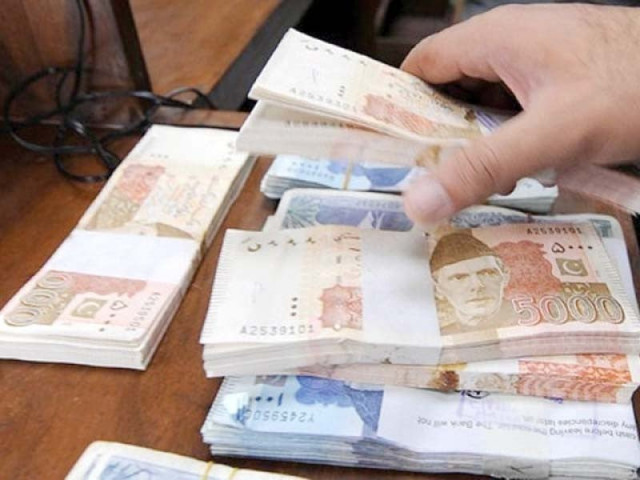Budget: a call for reforms
Focus remains on short-term gains rather than long-term reforms

During the annual budget process, various interest groups lobby for favourable treatment, such as changes in tax rates and subsidies.
However, the focus often remains on short-term gains rather than pursuing long-term economic reforms that can foster sustainable growth and increase the size of the economic pie.
Over the past five years, economic reforms in Pakistan have largely been driven by the requirements of the International Monetary Fund (IMF) and to some extent the Financial Action Task Force (FATF).
While progress has been made in some areas, such as the relatively greater independence of the State Bank of Pakistan, a floating exchange rate, and cuts in fuel subsidies, there is still a significant lack of comprehensive reforms that are needed to drive sustained economic growth.
A promising development in recent years was the launch of Pakistan’s first-ever National Security Policy (NSP) in January 2022. The NSP signalled a shift from geopolitics to geoeconomics, emphasising the importance of economic development and regional cooperation for Pakistan’s security.
However, there has been little practical progress in this direction. Efforts to enhance regional trade have been met with insufficient reciprocation from neighbouring countries and stakeholders within Pakistan.
Procuring cheaper raw materials, including cotton and industrial inputs from India, remains a major challenge, despite recent steps such as purchasing affordable oil from Russia and electricity from Iran.
Since November 2022, Pakistan has been unable to secure any further loan tranches from the IMF and thus releasing financial assistance from other multilateral sources.
With foreign exchange reserves at a precariously low level of around $4 billion, the government has prioritised reducing the current account deficit. In the first 10 months of current fiscal year 2022-23, the current account deficit was reduced by a remarkable 76%, from $13.654 billion to $3.258 billion.
However, this reduction has primarily been achieved through artificial import restrictions, which have had a number of adverse consequences.
For example, exports are estimated to have fallen by $3 billion. GDP growth is projected to drop below 1%, industrial growth is decelerating, and inflation has reached an unprecedented level of 36.4%, driven mainly by food prices. These factors are likely to push an additional four million people below the poverty line.
The annual budget is a critical opportunity to identify and prioritise key areas for reform. To avoid ambiguity, it is important to focus on two to three areas that require immediate attention.
Addressing stagnant exports, managing rising government expenditure, and curtailing tax exemptions should be top priorities.
Countries like South Korea, Chile, China, Turkey, India, Indonesia and Vietnam have all successfully used trade liberalisation to boost their exports and economic growth. These countries lowered import tariffs and embraced international trade, even in the face of challenges.
Pakistan can learn from these experiences and make a start by reducing its exceptionally high reliance on taxes on imports. This will help Pakistan to attract foreign direct investment, integrate into the global economy and improve its competitiveness.
This will also help reduce the size of Pakistan’s informal economy, which is estimated to be 35.6%, or more than one-third of its formal economy. This is a significant proportion, and it has a number of negative consequences for the country.
Another critical reform initiative involves privatising state enterprises with little potential for profitability.
For example, Pakistan Steel Mills has been dormant for the past eight years and has assets worth over Rs800 billion, including more than 17,000 acres of land. By leasing this land to new industries, we can unlock its economic potential.
Similarly, PIA has been incurring annual losses of over Rs50 billion for the last several years. In contrast, India privatised its struggling national carrier, Air India, and achieved significant milestones within the first year, such as doubling average daily revenue, enhancing punctuality, and expanding international flight operations by over 60%.
The rising trend of tax exemptions in Pakistan is a pressing concern. In the outgoing fiscal year, tax exemptions grew by 33.71% to Rs1.757 trillion.
A significant portion of these exemptions benefit certain commercial enterprises, giving them an unfair advantage over their competitors.
In light of the challenges and opportunities, we face a choice. We can either remain mired in the past and can continue on our current trajectory, or we can embark on a reform path guided by the ancient Chinese proverb, “The best time to plant a tree was 20 years ago. The second best time is now.”
The writer is a WTO trade arbitrator and a former ambassador of Pakistan to the WTO and FAO’s representative to the UN at Geneva
Published in The Express Tribune, May 22nd, 2023.
Like Business on Facebook, follow @TribuneBiz on Twitter to stay informed and join in the conversation.



















COMMENTS
Comments are moderated and generally will be posted if they are on-topic and not abusive.
For more information, please see our Comments FAQ